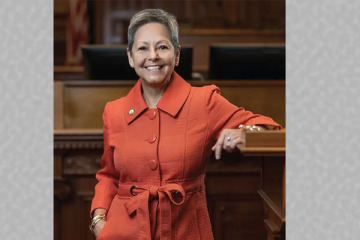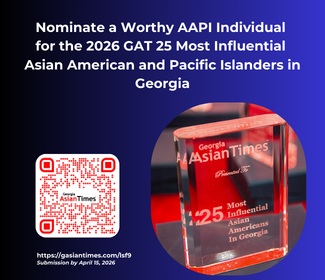By Jasmine Beady
Unlike most students at Kennesaw State University, the idea of earning a college degree at first seemed like an impossible dream to me. I don’t have parents in my life to pay my college tuition nor cover the cost of books and other basic college necessities.
There is no one to provide transportation or pay rent for my nearby apartment.
Unlike most students, I am a former foster child who aged out of the state’s foster care system four years ago, worked a few jobs, attended college, dropped out and now I have re-enrolled once again.
Yet this holiday season, I am thankful to be back in school – now a sophomore – and on track toward getting my degree in sociology. My goal is to earn a master’s degree and become a therapist and help others.
I am finally able to pursue my dreams this year due to Georgia’s new foster care tax credit program. Thanks to Georgia taxpayers who donated to the credit, funds are being used to help kids like me who have aged out of the state’s foster care system.
For me, it helps pay rent and my $300 monthly car payment on my 2006 Honda CRV. Without that assistance and other financial aid to cover college tuition, I wouldn’t be able to continue my studies this semester.
Without tax credit support, I would probably have to drop out of KSU once again, break my lease and move in with a friend like my sister did who couch surfed for years until she finally finished her degree. Now I am able to focus on the future and even dream of getting a master’s degree in a timely manner.
I am the granddaughter of Asian immigrants. My grandmother came to the United States from Laos but her son – my father – was unable to care for me due to a variety of factors including substance abuse. My mother could not care for me due to mental illness. That was how I wound up in foster care.
I had some lovely foster parents in North Georgia during my final high school years, but unfortunately, they fostered many troubled youths and could not send me to college.
This new foster care tax credit now offered through Fostering Success Act (FSA) keeps young adults like me from repeating the cycle of our parents. Programs like this can keep us from becoming homeless, pregnant at an early age, out of jail and off welfare programs.
FSA raises tax credit monies and then donates to non-profits like FaithBridge Youth Opportunities which provides grants to youths like myself to get through college without having to drop out and take full-time jobs or turn to crime to survive. I do work an occasional part-time job for extra spending money on the weekends, but the tax credit really does help me stay focused on being a full-time student.
This time of the year we all like to reflect and say we are thankful. I am particularly thankful for the foster care tax credit and how it has given me a future.
For those who would like to earn a dollar-for-dollar reduction on their state income taxes, they can start the process of applying for the tax credit with FSA here: https://fosteringsuccessact.org/start-the-process/tax-credit/
The foster care tax credit is a blessing as it is giving me a life and career that I never thought I would have. With more generous donations, it can do the same for the more than 700 kids each year who leave foster care and really want to pursue their dreams too.
Jasmine Beady, a Laotian American, is a young adult who aged out of Georgia’s foster care system and is a recipient of aid under Georgia’s new foster care tax credit.














